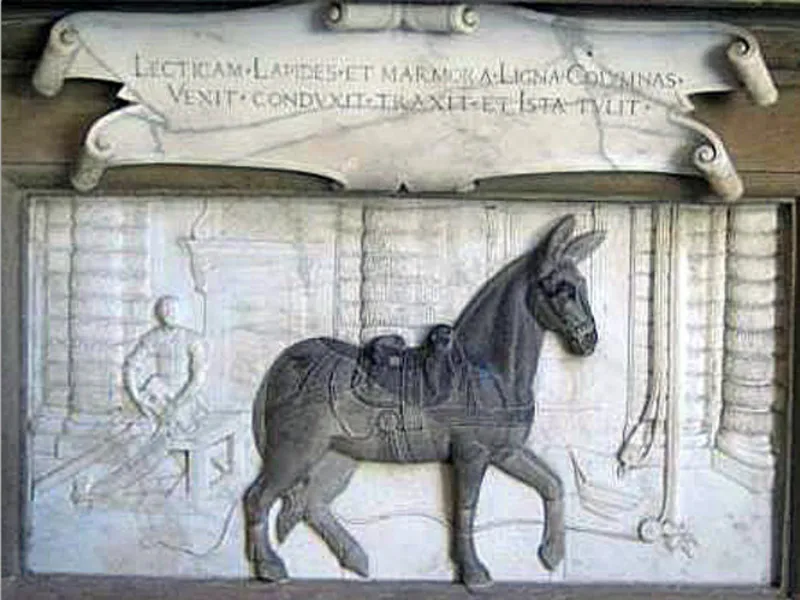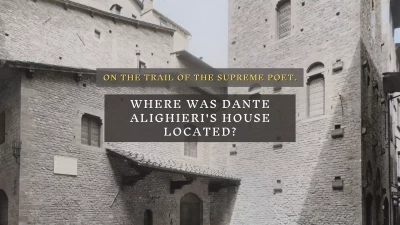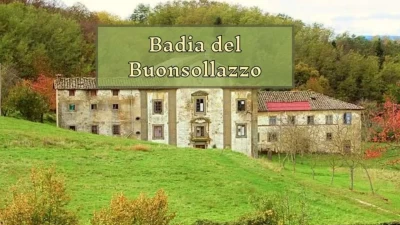Florence and Dante's Residence
Florence and Dante's Residence
An Enigma to Unravel
The true residence of Dante is still a matter of uncertainty. Through a small arch on the street called "Corso" in Florence, one can access the Dante District. In this evocative corner of Florence, the houses and churches of the Alighieri, Donati, Portinari, and Cerchi families were located. Although the original monuments from Dante's time are few, we must pay attention to the history present in this place.
In 1864, Florence, anticipating Dante's centenary and eager to become the capital of Italy, decided to dedicate a house to the memory of the poet. It seemed that the spirit of the poet could not wander without being embraced by four walls. Thus, a few decades later, the current Casa di Dante was reconstructed on the old dwellings.
Leonardo Bruni, the chancellor of the Florentine Republic, mentions in his biography of Dante that the Alighieri family lived near the church of San Martino del Vescovo, across the street that led to the Sacchetti houses. However, the exact location of the Alighieri houses and the birthplace of the supreme poet is indicated in a petition addressed to the Officials in Charge of the Roads on January 7, 1297. This petition requested the opening of a new road starting from Piazza Orsanmichele, crossing the loggia and the Cerchi Square, and reaching Via del Proconsolo.
The description indicates that Cione di Bello's house (a relative of Dante) was located towards Via de' Magazzini, towards Via del Proconsolo. This demonstrates that the Alighieri houses were near the church of San Martino, but in a position opposite to the one attributed to them in the 19th century.
Unfortunately, nothing remains of Dante's house. It was demolished by enemy fire and attacks. During his exile and death sentence, Dante embarked on a public career to support himself, accumulating a considerable debt.
The documents do not allow us to fully uncover this situation, but his exile and condemnation are the result of political hatred. Giovanni Boccaccio recounts that Dante's wife, Gemma Donati, sought refuge with some relatives and could only save a small portion of her dowry. Their son Jacopo tried to recover some family assets in 1343, but it only refers to rustic properties.
The towers of Florence shine in the morning, and the brightest of all is the Castagna Tower, quadrangular and slender. In 1282, the Magistrates of the Priors sought refuge there to escape the threats of the powerful. In front of the tower stands the church of San Martino del Vescovo, founded in 986, which was the parish of the Alighieri and Donati families.
The church of Santa Margherita de' Cerchi, next to the arch, was patronized by the Cerchi, Adimari, and Donati families. We can also consider the Badia Fiorentina, in front of the Bargello, as one of the places "frequented by Dante." However, it is not possible to assert with certainty if it was his actual home.
Altri articoli

A Mule is celebrated in the Palazzo Pitti
The marble decoration is situated on the left part of the courtyard.

Florence and Dante's Residence
Historical Testimonies on Dante's Residence in Florence.

Badia del Buonsollazzo
Dante himself, two centuries after his death, placed "the Great Baron" in the 'Paradiso'

Pisa, a Glorious City
Located along the Arno River, Pisa boasts a rich history and a glorious past as a maritime republic.

